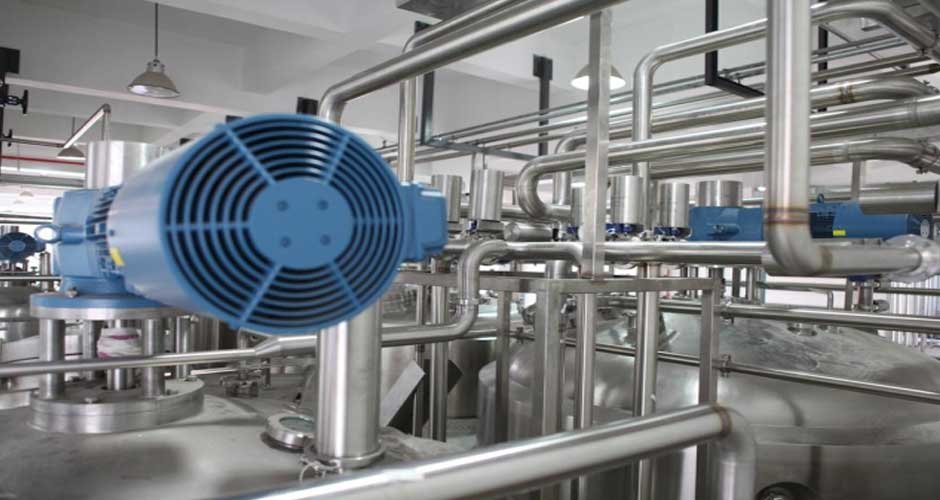Solidifying the backbone of a thriving industrial operation hinges on strategically managing several core components. Key amongst these is the meticulous attention to the optimization and maintenance of machinery, an area where even used equipment can be revitalized to deliver impressive performance and reliability. Another vital element involves investing in the workforce through rigorous training and heightened employee engagement, fostering a culture of expertise and dedication. Streamlining processes to enhance operational efficiency, paired with a commitment to never-ending improvement, also plays a critical role in the vitality of an industrial venture. Below, we will uncover how these strategies can create a robust and prosperous industrial operation.
Equipment Optimization and Maintenance

Industrial operations hinge on the performance and reliability of their equipment. Managing these assets efficiently not only sustains productivity but also extends the lifespan of the machinery. For example, in the construction and building materials industry, having a well-maintained collection of industrial mixers can ensure smooth production of concrete, mortar, and other essential materials, showing how reliable equipment and quality supplies are critical for efficiency and consistent output. An effective strategy involves routine inspections and maintenance to preempt any potential system failures.
One aspect of this process includes optimizing key components such as cooling systems. Repurposing devices like used evaporative condensers can be a cost-effective and resourceful practice. Careful assessments are necessary to ensure they meet operational standards and contribute positively to the system’s efficiency.
Preventive maintenance is a proactive step that detects issues before they escalate into costly repairs. Operators can reduce downtime and maintain consistent production output by regularly monitoring equipment. This proactive approach is integral to the longevity and success of industrial undertakings.
Lastly, training staff to proficiently understand and handle complex machinery is another cornerstone of effective equipment management. Knowledgeable personnel are better equipped to identify irregularities and perform necessary interventions, safeguarding an uninterrupted workflow.
Employee Training and Engagement

With the introduction of platforms like Rain App, companies provide their workforce with tools that facilitate financial autonomy and increase engagement. This innovative app allows employees to access some of their earned wages before payday, providing them with much-needed financial flexibility and relief. By offering this convenient feature, managers and owners can demonstrate their commitment to their staff’s well-being, which fosters employee loyalty and engagement. For more information, visit Rain App at rainapp.com.
In addition, regular training sessions are vital in any thriving industrial business, ensuring employees stay abreast of the latest technologies and methodologies. Equipped with updated skills, workers navigate their roles with greater confidence and efficiency. The direct impact of knowledgeable staff reduces operational errors and increases overall productivity.
Employee engagement translates into proactive problem-solving on the production floor when nurtured through supportive programs. A valued workforce is more likely to take initiative and contribute innovative ideas. Such contributions are invaluable, leading to improved processes and potentially pioneering industry advances.
Finally, a thriving industrial operation understands the symbiotic relationship between developing its workforce and achieving operational excellence. Businesses invest in their employees, which galvanizes staff loyalty and dedication. An engaged employee base is critical for sustained high performance and long-term business viability.
Operational Efficiency and Continuous Improvement
Striking the right balance between operational efficiency and the pursuit of continuous improvement is a hallmark of a leading-edge industrial operation. Managers must scrutinize workflow and processes to pinpoint any bottlenecks or inefficiencies. By employing a methodology of continual refinement, industry leaders can adapt and stay ahead of the curve in a dynamic market.
One aspect of this refinement process involves evaluating the performance metrics frequently. Distilling data into actionable insights allows management to make informed decisions. This unwavering focus on data-driven strategy is critical to fostering an ongoing development and advancement environment.
Another essential component is fostering a culture that views feedback as a gateway to personal and communal growth. Leaders understand that every operational challenge is an opportunity to learn and enhance. This perspective is instrumental in nurturing a team that is resilient, adaptive, and committed to excellence.
Finally, investments in technology and infrastructure reflect an unwavering commitment to continual progress. Prioritizing the seamless integration of advanced tools and systems yields substantial benefits, including increased throughput, reduced waste, and refinement of the overall production lifecycle.
Altogether, industrial operations can forge a path to sustained success in today’s competitive landscape by prioritizing meticulous equipment optimization and maintenance, investing in comprehensive employee training and engagement strategies, and continually refining operational efficiency through adaptive improvements. These integrated strategies bolster productivity and reliability and cultivate a resilient workforce capable of driving innovation and achieving enduring excellence.












